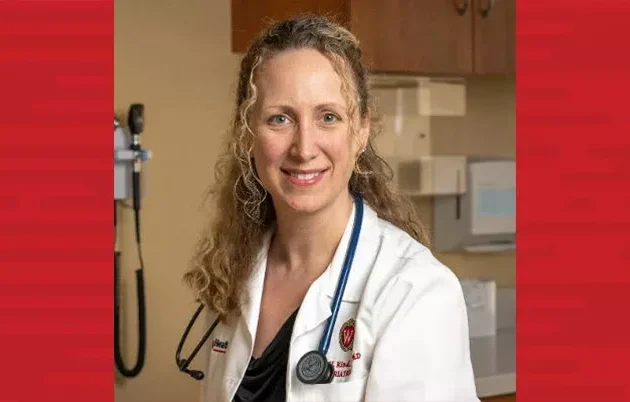This year’s inaugural awards focus on a wide range of topics including: addiction awareness, support for veterans, incarceration, care for postpartum Latina mothers and more. The awarded projects span 24 months.
Bringing addiction awareness to schools
The WisconsinEye Public Affairs Network was awarded $50,000 to create and distribute a curriculum statewide for its film “Straight Forward: The Truth about Addiction.” The documentary features five young Wisconsinites of diverse backgrounds who share their stories of opioid and heroin addiction and recovery.
Through the project, Wisconsin middle and high schools will have the opportunity to show the film and use the accompanying curriculum. The project’s ultimate goal is to create awareness about Wisconsin’s addiction crisis and empower young people and their families with information and inspiration to live sober and successful lives.
Expanding mental health services for veterans
Great Lakes Dryhootch has received $50,000 to support development of The Dryhootch Digital Forward Operating Base (DigitalFOB), a cloud-based solution to the increasing demand from veterans for non-clinical, peer-based mental health services.
DigitalFOB will offer a secure, confidential space in which veterans and family members can connect virtually with other veterans and family members. The service aims to reach veterans across the state and has the potential to reach beyond Wisconsin as well.
Expanding the health care workforce in correctional settings
The Nehemiah Community Development Corporation was awarded $38,500 for its project, “Increasing Access to Quality Healthcare in Correctional Settings by Expanding Health Workforce Capacity.” The project will assemble a cross-UW campus multidisciplinary class on correctional health care that will provide both an overview of the complicated criminal justice system and match future graduates to mentors delivering health care to people in prison.
In addition to curriculum and panel discussions, the project aims to develop a mentored relationship between trainees and mentors focusing on the importance of delivering quality health care to incarcerated individuals.
Breaking the school to prison pipeline
The Milwaukee Inter-City Congregation Allies for Hope and the youth project Leaders Igniting Transformation was awarded $50,000 for Youth Decarceration, a project that aims to improve opportunities for Milwaukee youth at risk for expulsion and incarceration. Youth Decarceration will engage and empower young people from Milwaukee’s poorest neighborhoods and schools with the highest rates of suspensions and expulsions.
The project will build these students’ leadership skills to work with key community organizations to help reform inequities in disciplinary systems and address root causes of trauma and social determinants of poor health. The project aims to decrease racial disparities in school suspensions and incarceration, increase financial investment in youth and produce a cohort of transformative community leaders of color for Milwaukee.
Connecting community health services to those in need
Health Connect Corp. was awarded $50,000 for its project Working Together to Eliminate Health Inequities and Disparities, which will complete the development of the online resource, HealthConnect.Link, an online community of free and subsidized health care and social services.
The resource is designed to support and connect the area’s most vulnerable and marginalized residents to care and services they need by identifying nearby organizations with the ability to provide the needed care and services in real time. The project will initially serve Dane, Rock and Sauk Counties.
Improving care for new Latina mothers
Centro Hispano of Dane County has received $50,000 for “Community Health Workers: Working to Increase Knowledge on Mental Health and Nutrition for Post-partum Latina Moms During Home Visits.”
The project will develop a community-based wellness educational program to train community health workers to reduce the observed and documented health disparities affecting Latina postpartum women through a home visiting program. The project will focus on maternal well-being, depression, peer support, breastfeeding and infant/child nutrition. In addition, the community health workers will also be trained in the skills needed to achieve sustainable employment beyond the grant program.
Addressing adverse childhood health experiences
Supporting Families Together Association was awarded $50,000 for its project, Parent Leadership as a Catalyst for Health Equity. The project will develop a parent leadership cohort in which parents with lived experience will lead the design of community-based supports to address health inequities associated with childhood abuse and neglect and how it influences health and well-being later in life — often referred to as “adverse childhood experiences.”
Four teams statewide will form a cohort for shared and peer learning in order to increase parent knowledge of how to prevent adverse childhood experiences, increase leadership skills and launch community-based projects to prevent them.
Expanding bike access in Wood County
Wood County Health Department has received $50,000 to expand its River Riders Bike Share Program. The project, “Getting Bike Equity Right: A River Rider Bike Share Initiative,” will ensure equitable expansion of the bike share program through increased accessibility, improved infrastructure and community engagement.
The project will add bikes that are accessible for people with disabilities and more supportive for the elderly and larger bodies as well as improve its infrastructure through more signage, painted lanes and covered locations that can house bikes for year-round use. Through community engagement and outreach the project aims to develop its bike share program to meet the specific needs of its rural community.

